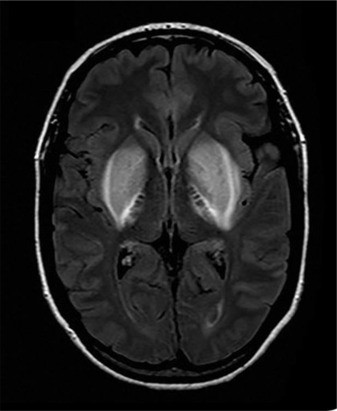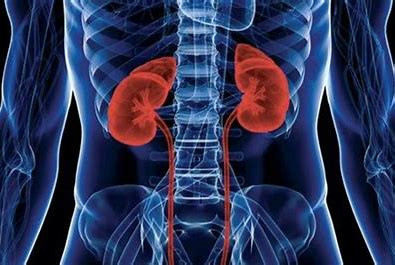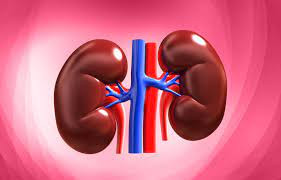Definition
Uremic encephalopathy is a type of brain dysfunction caused by the accumulation of urea, a metabolic byproduct and waste product of protein breakdown in the liver. Normally, urea should be excreted in the urine through the kidneys. High levels of urea in the blood can indicate kidney disease. If urea levels continue to rise and kidney disease is not properly treated, complications such as uremic encephalopathy can occur.
Causes
Uremic encephalopathy is caused by the buildup of urea that occurs in kidney failure. In kidney dysfunction, there is a decreased ability of the kidneys to filter metabolic waste products, including urea. Urea acts as a free radical, causing oxidative stress, which can disrupt cellular function. This cellular disruption leads to the production of more urea, creating a vicious cycle.
Most patients with a kidney filtration capacity of less than 10 ml/min will experience encephalopathy to varying degrees. However, not all will show clear symptoms. One study found that encephalopathy occurred in 40% of children with blood urea nitrogen levels above 90 mg/dL. The risk of seizures increases in proportion to elevated blood urea nitrogen levels.
Risk factor
Uremic encephalopathy can occur at any age, regardless of race and gender. Individuals with Chronic Kidney Disease (CKD) are at the highest risk. Some risk factors for CKD include:
- Diabetes mellitus
- Hypertension (high blood pressure)
- Inflammation of the kidney's filtering units (glomerulonephritis)
- Polycystic kidney disease, characterized by fluid-filled cysts in the kidneys
Symptoms
Symptoms of uremic encephalopathy can vary and worsen if untreated. General symptoms include:
- Fatigue, lethargy
- Loss of appetite
- Weight loss
- Nausea
- Restlessness
- Drowsiness
- Reduced ability to concentrate
- Movement control issues (spontaneous movements)
- Slowly progressing cognitive impairment, often not noticeable until advanced
In individuals with rapidly declining kidney function, especially in acute kidney injury, more severe symptoms may arise:
- Vomiting
- Emotional disturbances
- Rapid cognitive decline
- Confusion
- Disorientation
- Strange behavior
- Inability to think clearly
- Memory impairment
- Seizures
- Coma (in severe, untreated cases)
Diagnosis
The symptoms of uremic encephalopathy are often varied and not always obvious. There is no single test to confirm uremic encephalopathy, leading to potential delays in diagnosis.
Doctors will conduct various tests to diagnose uremic encephalopathy. Initially, they will ask about the patient's medical history and symptoms. A physical examination will follow to identify cognitive impairments such as memory issues, decision-making difficulties, and calculation ability.
Additionally, a complete neurological examination will be performed, including:
- Cranial nerve examination
- Eye examination
- Reflex testing
- Gait assessment
- Consciousness evaluation
Doctors may also perform additional tests to rule out other conditions that may resemble uremic encephalopathies, such as infections, neurological disorders, brain hemorrhages, hypertensive encephalopathy, stroke, electrolyte imbalances, and more. These tests may include:
- Laboratory tests:
- Complete blood count to detect underlying causes and other illnesses that may worsen encephalopathy.
- Kidney function tests to measure blood urea nitrogen and creatinine levels, which are elevated in uremic encephalopathy.
- Metabolic screening.
- Blood calcium, phosphate, and parathyroid hormone levels to rule out metabolic encephalopathy.
- Blood magnesium levels, as magnesium can increase in kidney dysfunction and cause encephalopathy-like symptoms.
- Toxicology screening to detect drug or substance accumulation, which can occur in kidney failure and cause encephalopathy.
- Neurological tests:
- Electroencephalogram (EEG) to rule out brain abnormalities like seizures. EEG can also reveal specific changes in uremic encephalopathy, though not confirmatory.
- Radiological exams:
- CT scan or MRI of the brain to exclude other conditions such as strokes, brain hemorrhages, or tumors.
- Cognitive tests:
- Trail-making test to measure psychomotor speed; poor performance indicates uremic encephalopathy.
- Continuous memory test to assess short-term memory.
- Choice reaction time test to evaluate simple decision-making ability.
Management
Uremic encephalopathy requires renal replacement therapy, such as dialysis. However, dialysis only partially improves brain dysfunction. Early diagnosis is crucial to start therapy promptly and prevent severe complications.
In addition to dialysis, underlying kidney disease needs treatment, which may include:
- Erythropoiesis-stimulating agents
- Phosphate binders
- Calcium supplements
- Nutritional modifications
For those with end-stage kidney disease, kidney transplantation is the final treatment option.
Complications
Complications of uremic encephalopathy include seizures, coma, and death. Starting dialysis can partially restore brain function and reduce mortality. However, some cognitive changes may be permanent.
Prevention
Urea accumulation typically occurs in end-stage kidney disease. Patients need regular dialysis to manage toxin buildup, including urea. To prevent or slow kidney disease progression if you have chronic kidney disease, you should:
- Control blood pressure, blood sugar, or other health issues
- Take medications as prescribed by your doctor
- Avoid medications that can further harm the kidneys
- Follow a heart-healthy diet
- Exercise as advised by your doctor
- Maintain a healthy weight
- Stop smoking
When to see a doctor?
Uremic encephalopathy is an emergency. Seek immediate medical help if you or someone with kidney disease shows signs such as:
- Chest pain
- Cognitive decline
- Difficulty breathing
- Loss of orientation
- Excessive fatigue
- Nausea and vomiting
Looking for more information about other diseases? Click here!
- dr Ayu Munawaroh, MKK
Olano, C., Akram, S., & Bhatt, H. (2022). Uremic Encephalopathy. Retrieved 14 September 2022, from https://www.ncbi.nlm.nih.gov/books/NBK564327/.
Medscape. Uremic Encephalopathy: Practice Essentials, Pathophysiology, Epidemiology. (2020). Retrieved 15 September 2022, from https://emedicine.medscape.com/article/239191-overview#a1.
Uremia: Complications, Causes, Symptoms & Treatment. (2021). Retrieved 15 September 2022, from https://my.clevelandclinic.org/health/diseases/21509-uremia#prevention.












